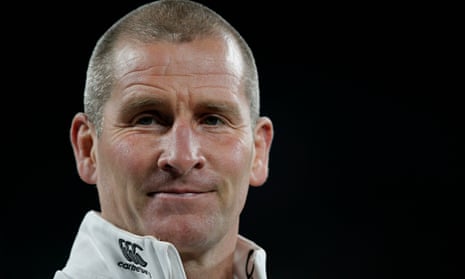Soon after being appointed England’s head coach on a permanent basis in 2012 Stuart Lancaster said he wanted to go into the World Cup with a starting line-up that had 600 caps. A feature of his time in charge of the national side has been his attention to detail and meticulous planning – he always carries with him a large diary that, as the months pass, starts to bulge at the seams – and research has shown him that experience is an essential ingredient to winning the tournament.
The team that started the final match of the Six Nations in March against France at Twickenham had 450 caps with only three boasting 50 or more, Dylan Hartley, James Haskell and Dan Cole. One of their group rivals, Wales, will go into the World Cup, injuries permitting, with a first team armed with more than 750 caps.
“We are where I hoped we would be when taking over if you look at the building blocks,” said Lancaster, who last week announced a training squad of 50 for the World Cup that will be reduced to 31 before the last of three warm-up matches in September. “The club-country relationship is strong, the players enjoy it with England, there is a good culture and team spirit and we have strength in depth. Not winning championships is disappointing and in an ideal world you would want a team with a bit more experience but that was never going to be possible with injuries that have affected key positions.”
Lancaster studied in detail England’s last four World Cup campaigns, in particular the preparations for the tournaments, as he planned for this summer which will see the squad travel to Denver for altitude training.
“I was fortunate to be there in 2011, understanding the strengths of the campaign leading into it and some areas where we did not do as well,” he said. “I saw the report and understand how some of the things you would not expect to affect the build-up can do.
“Putting together the context when we come into camp in June is crucial, as is getting it right. We don’t want to do the rugby too early and we have to make sure the commercial dynamic fits into the equation. We have to get selection and communication right and the warm-up matches [two against France and one against Ireland] have to be the proper quality.
“It will be pretty grim for the players in Denver and we then go to Vail, which is even higher. The altitude effect will not last until the World Cup starts but it will enhance them and get them out of the bubble.
“One of the key things to consider is that we have to be ready for the kick-off of the World Cup, not feel like we are at the end of the line on 18 September and worn out. We will need to be kicking on, not dipping, and that means not overcooking things early on and spending emotional energy too early.
“We will take the players away after the second warm-up game against France to do something different along leadership development lines. They should come back from altitude training leaner and fitter because it is an effective way of stripping body fat. If they are not fitter than they have ever been, they will be going home. To win the World Cup, you have to be the fittest team.”
Shortly after he had been appointed by England Lancaster compared building a team and the environment it operated in to baking a cake, saying you had to get the mix right before adding the icing. He has repaired the damage England suffered to their reputation during the last World Cup in New Zealand which made the need to discipline Manu Tuilagi after the Leicester centre appeared in court for assaulting a taxi driver and two female police officers all the more depressing for him.
“It was a real shame because it was out of the blue,” said Lancaster. “No one saw it coming. Leicester have done a brilliant job of developing him over the years and it is not a reflection of Manu. I would not say it is a wake-up call because the players are very, very aware.
“When the scrutiny inevitably comes on as the World Cup gets under way you have to hold together under pressure. That comes back to the culture of the team: if it is strong, you will not split.”
The England forwards coach, Graham Rowntree, was a member of England’s management team in 2011, the one survivor in the fallout from the tour. “We are in a different place now culturally,” he said.
“We are very strong. Stuart was clear about the need for that when the squad first met in Leeds in January 2012 and it is pointless reflecting on last time,” he said. “There will be greater scrutiny because we are hosting the World Cup but the lads know absolutely what is expected of them.”
When the players arrive in camp on 22 June Lancaster will speak to each one individually. “The trick is to set expectations early,” he said.
“I will give each of them a true assessment of where they are in the pecking order in their position: you get problems when people do not know where they stand and if you are not honest to them.
“If a player is No1 in his position, you tell him to work hard to maintain that; if he is on the cusp of the 31, you tell him what he needs to do; and if someone is a long way from it, you tell him he has a lot to do.
“Given our pool, I think we will have to play our strongest side in the first three matches [Fiji, Wales and Australia]. We have a good idea of the benchmark of all the players. We want 10% beyond it.”
